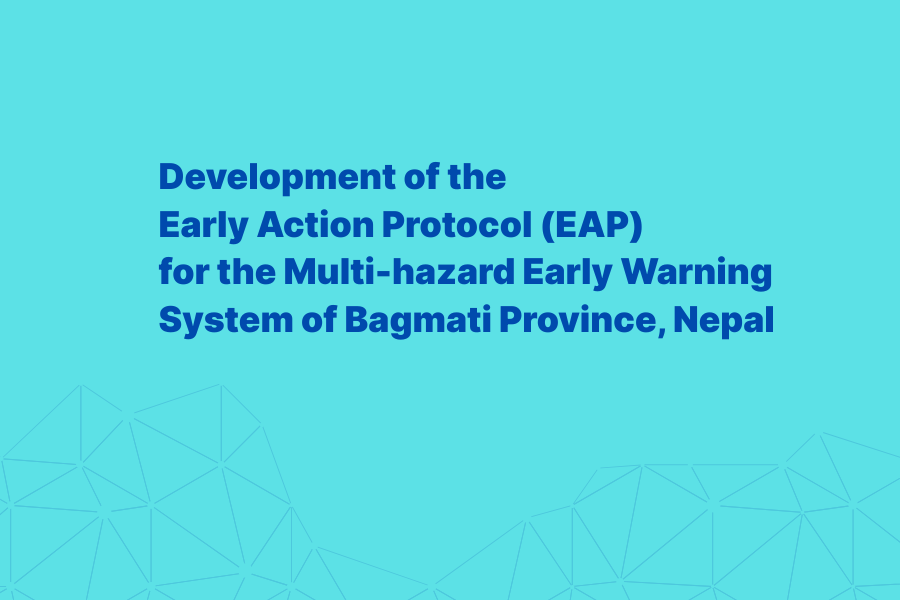Development of the Early Action Protocol (EAP) for the Multi-hazard Early Warning System of Bagmati Province, Nepal
Bagmati Province in Nepal is vulnerable to multiple hazards, including floods, landslides, earthquakes, urban fires, epidemics, and extreme weather events intensified by climate change. While early warning systems (EWS) exist, disaster response mechanisms are often reactive, resulting in avoidable loss of lives and property. In this context, developing an Early Action Protocol (EAP) for a Multi-Hazard Early Warning System (MHEWS) is crucial to enhance preparedness and enable timely, coordinated, and proactive responses.
This assignment aims to support the development of a community-centric and action-oriented EAP for Bagmati Province. The EAP will be grounded in a multi-hazard risk assessment that identifies high-risk zones and analyzes exposure and vulnerabilities. It will define clear trigger mechanisms, such as rainfall thresholds or river discharge levels, and link them to specific early actions like evacuation alerts, supply prepositioning, and temporary shelter setup. Institutional roles and responsibilities of key actors—including the Provincial Disaster Management Committee (PDMC), local governments, and community-based committees—will be delineated to ensure effective coordination.
The assignment includes reviewing relevant policies such as the DRRM Act 2017, National DRR Policy 2018, and local-level DRR strategies, as well as previously developed EAPs. It also involves stakeholder consultations to gather inputs and build consensus. Key focus areas include strengthening risk monitoring and communication systems, localizing early warning thresholds (especially for landslides), developing emergency communication protocols, and promoting budgetary integration of DRR/DRM at provincial and local levels. Additionally, monitoring, evaluation, and continuous learning mechanisms will be established to improve the effectiveness of early actions over time. Overall, the EAP aims to minimize disaster impacts and build resilient communities through timely and well-coordinated anticipatory actions.
This assignment is led by our Thematic Leader, Madhu Sudan Gautam, with support from Navin Dahal as part of the core team. The task is being undertaken for Practical Action Nepal.


